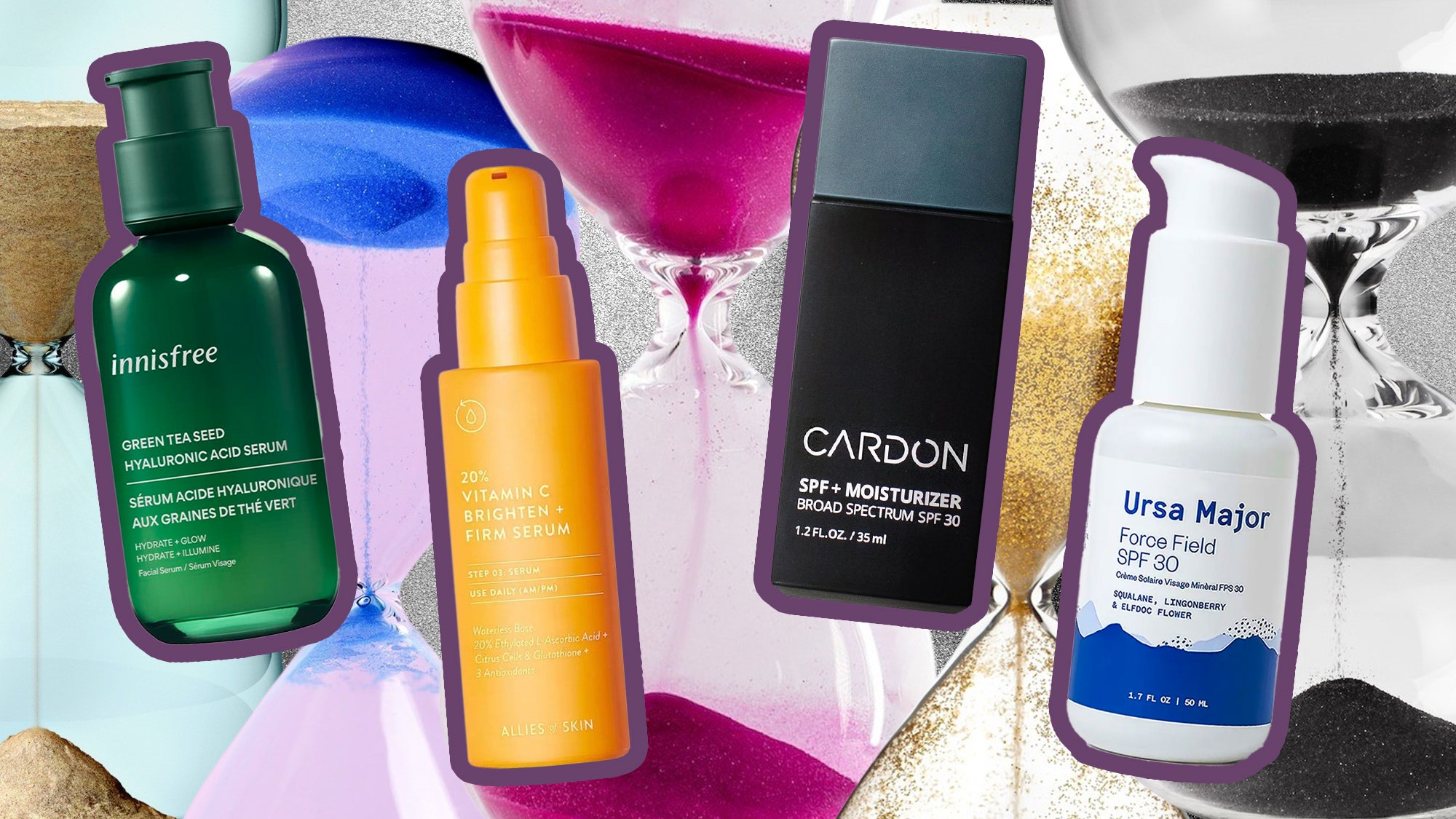
A MINIMALIST ANTI-AGING SKINCARE ROUTINE FOR MAXIMUM BENEFITS
The term “anti-aging” feels a bit retrograde—aging isn’t something to be “anti” about—and the best anti-aging skincare routine is really just treating your skin properly. All skincare is anti-aging, designed to ward off the dryness, sagging, dark spots, wrinkles, and more that accumulate with damage. But I’m not here to argue semantics, since I know what you mean: you want the smartest, simplest possible skincare program to help your mug shine bright and feel healthy. Very doable. And you don’t have to spend thousands of dollars a year for an effective anti-aging regimen.
We've built a four-step upgrade with expertise from board-certified dermatologist Dr. Brandon Kirsch at Kirsch Dermatology in Naples, Florida. (Because if anyone knows how to keep people youthful in the land of brutal sun, it’s a dermatologist from Florida.) This regimen builds off the basic tenets of skincare—cleanse, exfoliate, moisturize—by adding in some more proactive products using powerhouse ingredients.
While we don’t think aging is something you need to be stressed about, we do know your skin will feel a whole lot nicer once you start working parts of this skincare plan into your own.
1. Wear SPF Daily
The sun: can’t live without it, can’t stop it from doing bad things to our skin. But we can try. Dr. Kirsch agrees that sunscreen is the most important anti-aging product in any skincare program. “It is the first line of defense against the primary external factor responsible for premature aging,” he explains. “UV rays can cause wrinkles, age spots, and collagen breakdown.”
People spend tons of cash on corrective procedures and pricey treatments to undo all the hours they log absorbing sunlight. Smarter—and cheaper—is avoiding harsh sun as much as you can and wearing SPF year round. Yes, even in winter. Yes, even on days you’re almost entirely indoors. The idea is to build the habit, so that putting on SPF is like brushing your teeth. “Sunscreen neutralizes the need for other products by preventing the damage in the first place,” says Kirsch.
“Always SPF” applies to any sun-exposed skin, but for your face, look for lightweight facial sunscreen or moisturizer with SPF, which saves you a step every morning. The finest minimalism!
2. Wear Retinoids Nightly
If we’re talking about consolidating steps, we can’t forget retinoids: they help “erase” wrinkles while also exfoliating. “Retinol” is the most popular version, but all retinoids are Vitamin A derivatives that improve and regulate cell turnover. “Their powerful exfoliating action helps to keep the skin's surface smooth and even-toned, reducing the appearance of fine lines and wrinkles, as well as decreasing acne and hyperpigmentation,” explains Kirsch. That’s not all. As Kirsch explains, retinoids also firm up the skin and add a healthy glow. Retinoids: the Lebron James of skincare.
You should apply retinoids before bed—with or after a night moisturizer—since your skin enters its regenerative cycle while you snooze. The standard retinoid caveats apply: they can cause sensitivity to sunlight (remember that SPF!), and first-time users might experience redness for a few weeks as their skin acclimates. If that happens, dial down usage to every 2-3 nights, until your skin’s in the groove. And be patient: it takes about 90 days for the results to really shine through, and you need to keep up the retinoid regimen to keep the benefits.
You can get over-the-counter retinoids at most skincare retailers, including adapalene gel, a retinoid that is especially good for acne-prone skin. For high-grade options, get a prescription for tretinoin from your board-certified dermatologist, or from telemedicine sites like Apostrophe or Musely.
3. Fortify Skin with Vitamin C
If you’re not already acquainted, I’d like to introduce you to vitamin C. Know how grandma always wanted to feed you more food? Vitamin C stuffs your skin with antioxidants, which protect skin against chemicals, pollution, UV rays, and all sorts of other free radicals. In doing so, it reduces redness to improve skin tone, prevents and brightens dark spots and hyperpigmentation (by inhibiting melanin production), speeds up the skin’s healing processes, and—and!—makes it firmer by stimulating collagen production. Vitamin C: anti-aging in a bottle.
Speaking of bottles, getting the right type of vitamin-C-centric product is crucial, since the ingredient breaks down quickly. “Exposure to air and light can degrade the ingredient, rendering it ineffective,” says Kirsch. Look for products that allow you to mix the formula at home, so you know your vitamin C product hasn’t been wasting away in a warehouse.
Oh, and as Kirsch points out, more isn’t necessarily better. “Concentrations between 10-20% are typically considered effective,” he says.
4. Factor in Your Skin Type
While retinoids and vitamin C and SPF are generally one-size-fits-all, insofar as everyone should be using them, you’ll want to take an extra step or two based on what your specific type of skin needs more of. Dry skin wants different ingredients than oily skin which wants different treatments than acne-prone skin. You get the idea.
Below are some Kirsch-suggested add-ins for your anti-aging skincare regimen based on skin type.
Dry Skin
“Prioritize ingredients like hyaluronic acid for intense hydration, as well as ceramides, which help to create a barrier on the skin that prevents moisture loss. Both will give the skin a nice shine.”
Oily Skin
“Green tea extract will reduce excess oil and has antioxidant properties that can help to protect the skin from damage caused by free radicals. Niacinamide can help balance sebum production and reduce the appearance of redness.”
Acne-Prone Skin
“Beta hydroxy acids, especially salicylic acid, should be a top choice for acne prevention,” says Kirsch, because they exfoliate and regulate oil production. He also suggests azelaic acid, which kills the bacteria that cause acne, plus helps skin texture.
Hyperpigmentation-Prone Skin
Besides vitamin C, which reduces and prevents overactive melanin production, Kirsch recommends alpha hydroxy acids (AHAs). “They can help fade dark spots and promote a more radiant complexion.”